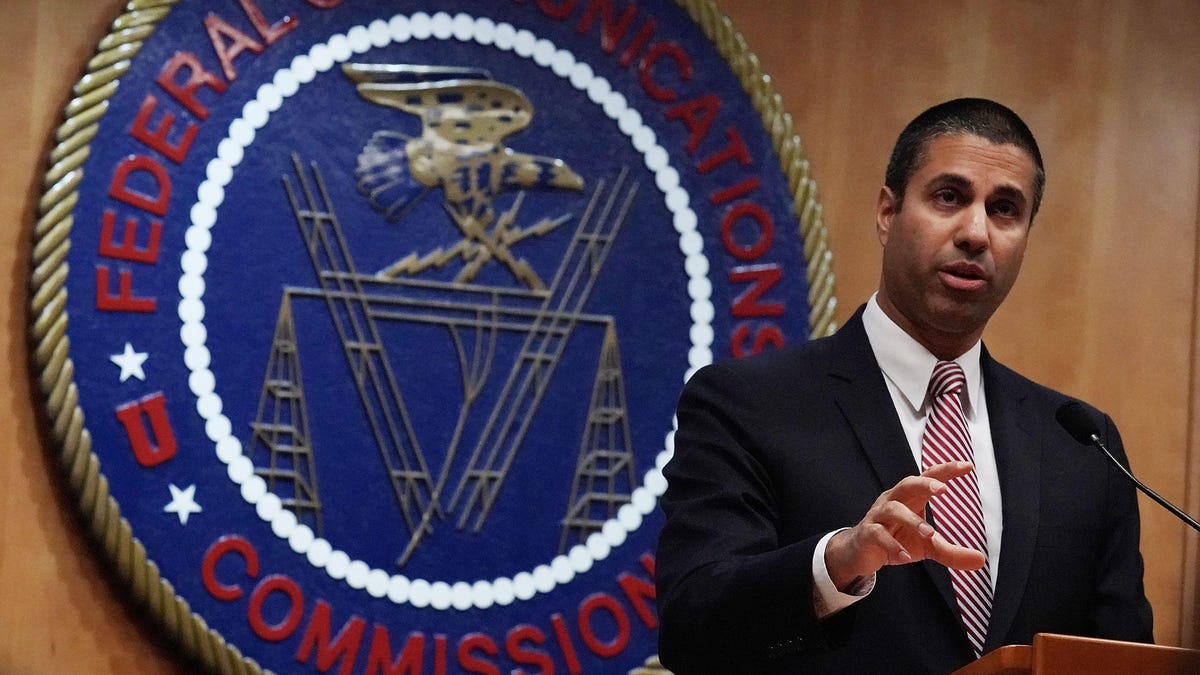FCC cites 'national security threat' for proposed ban on gear
Chairman Ajit Pai unveils a plan to bar carriers receiving government subsidy funds from using equipment from Chinese gear makers Huawei and ZTE, among others.

Federal Communications Commission Chairman Ajit Pai.
FCC chairman Ajit Pai is proposing new rules that would bar telecommunications and broadband companies from using a government subsidy program to buy telecom equipment and services from "any company that poses a national security threat."
Pai didn't specify which companies or countries would be banned as part of the proposal. Officials from the FCC said on a call with reporters that the proposal seeks comment on that question.
Specifically, the FCC is looking for comments on rules that would bar the use of money from the agency's Universal Service Fund to purchase equipment or services from companies that could pose a risk to US communications networks or the communications supply chain. The USF is a subsidy program that distributes money to low-income individuals, as well as directly to wireless, broadband and wireline telephone service companies to help provide service in areas that are otherwise too expensive to cover.
An FCC official said the rules would focus only on telecommunications equipment and not smartphones offered by banned companies.
"Hidden 'back doors' to our networks in routers, switches — and virtually any other type of telecommunications equipment — can provide an avenue for hostile governments to inject viruses, launch denial-of-service attacks, steal data, and more," Pai said in a statement Monday.
The FCC will hold an initial vote on the proposal on April 17.
On Friday, Pai's office made public a letter the chairman sent to lawmakers, dated March 20, that stated he shared concerns about espionage threats from Chinese smartphone maker Huawei Technologies. And he said he intended to take action.
Pai's letter came after legislation was introduced in February by Republican senators Tom Cotton of Arkansas and Marco Rubio of Florida that would block the US government from buying or leasing telecom equipment from Huawei or fellow Chinese phone and equipment maker ZTE. Chinese companies have come under scrutiny in the US in the past few years as many experts fear they would use their access to communications networks to spy on the US.
In 2012, the House Intelligence Committee released a report accusing Huawei and ZTE of making telecommunications equipment that posed national security threats, and lawmakers discouraged US companies from buying the gear. Sprint, for instance, had earlier considered using Huawei to supply equipment to its network, but opted not to work with the company.
Following the report's release, the committee stressed that the report didn't refer to smartphones. Still, the increased scrutiny has affected the companies' handset businesses in the US. In January, AT&T dropped its deal to sell Huawei's smartphones in the US over security concerns. Verizon also reportedly nixed its own plans to sell Huawei phones.
Last week, Best Buy, the nation's largest electronics retailer, cut ties with Huawei. It plans to stop selling the Chinese company's smartphones as well as laptops and smartwatches.
Representatives from Huawei and ZTE were unavailable for comment on Monday's statement from the FCC.
The Smartest Stuff: Innovators are thinking up new ways to make you, and the things around you, smarter.
Special Reports: CNET's in-depth features in one place.

